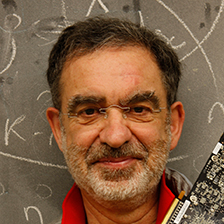首页>演讲嘉宾> Tomaso Poggio更新时间:

The birth of artificial-intelligence research as an autonomous discipline is generally thought to have been the month long Dartmouth Summer Research Project on Artificial Intelligence in 1956, which convened 10 leading electrical engineers — including MIT’s Marvin Minsky and Claude Shannon — to discuss “how to make machines use language” and “form abstractions and concepts.” The problem, of course, turned out to be much more difficult than AI’s pioneers had imagined. In recent years, by exploiting machine learning — in which computers learn to perform tasks from sets of training examples — artificial-intelligence researchers have built impressive systems. Two of my former postdocs — Demis Hassabis and Amnon Shashua — are behind the two main success stories of AI, AlphaGo better than human player at Go and Mobileye at the forefront of vision-based autonomous driving. Some of the present excitement is due to realistic expectations for further progress. but there is also a substantial amount of hype. A substantial effort in basic research is needed to develop a true science of intelligence. I will briefly review today’s engineering of intelligence and some of the mathematics underlying it, the mathematics of learning from data. I will also sketch the vision of the MIT Center for Brains, Minds and Machines which strives to make progress on the science of intelligence by combining machine learning and computer science with neuroscience and cognitive science